Care failings for autistic man who died from broken neck
- Published
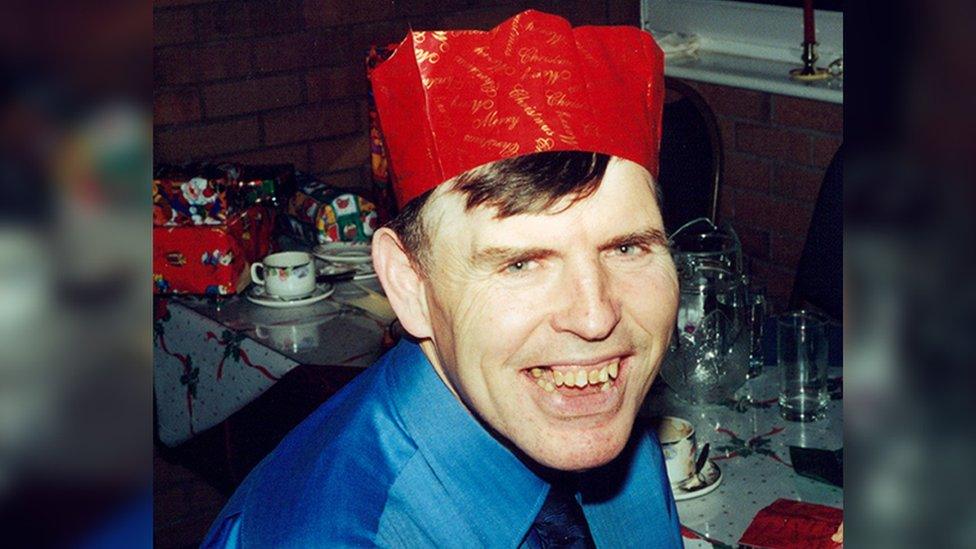
Heddwyn Hughes died after breaking his neck at the nursing home he lived in
A disabled man found to have a fractured neck days after a fall at a care home did not receive appropriate care, an inquest has concluded.
Heddwyn Hughes, 67, died in October 2015, five months after the fall at Bro Myrddin care home, Carmarthen.
An inquest jury in Milford Haven found Hywel Dda Health Trust staff did not respond appropriately or with sufficient urgency.
They also concluded protocol was inadequate and should be reviewed.
The jury found there were failings in communication between staff and a doctor, although they could not determine how Mr Hughes suffered the injury.
It followed a three-year battle by Mr Hughes' family.
Clare Richardson, representing the family, said: "This is the result of remarkable courage and determination by Heddwyn's family who have overcome significant obstacles in their search for the truth."
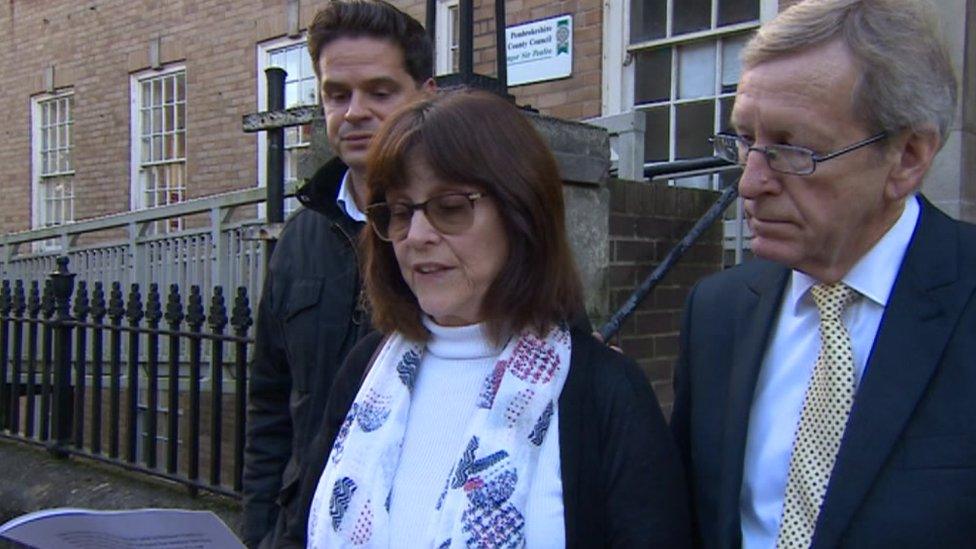
Mr Hughes' sister Moelwen Gwyndaf led a three-year battle to overturn the original pathologist report
Mr Hughes, who had autism and was unable to communicate what he needed or how he felt, had been in the care of the state since the age of nine.
The inquest heard on the morning of 6 May, 2015, he suffered a "catastrophic" injury after collapsing to the floor of his bedroom whilst being lifted by staff.
It took around four hours for him to be seen by a medical professional, and it later transpired he had broken his neck.
A spinal expert told the jury that Mr Hughes was likely to have become quadriplegic at the point of injury. He died in Glangwili Hospital five months later as a result.
A Hywel Dda pathologist's report had initially stated he had died from natural causes.
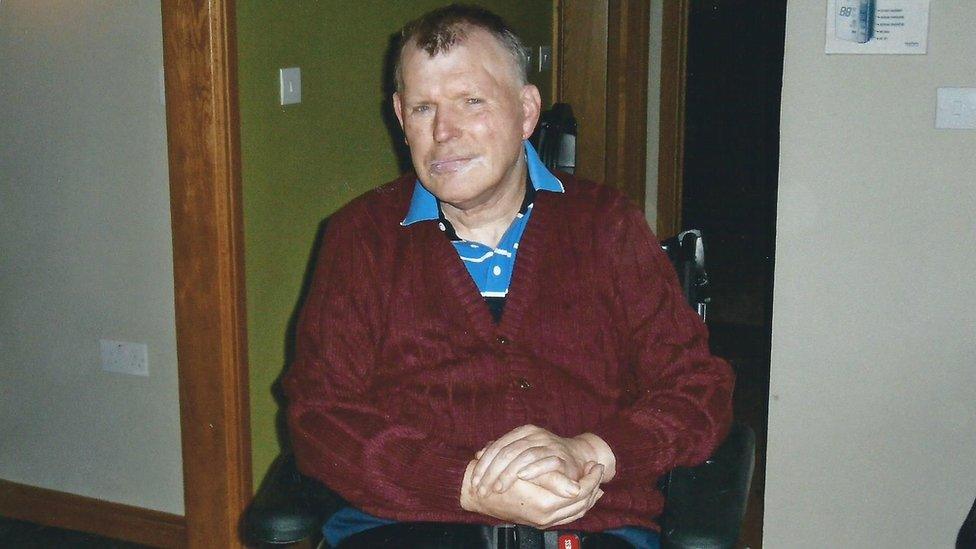
Heddwyn Hughes was one of five residents at the Bro Myrddin care home
Mr Hughes' sister Moelwen Gwyndaf said outside the court: "At the centre of all this is my brother Heddwyn.
"He was much loved and (his) life required so much support."
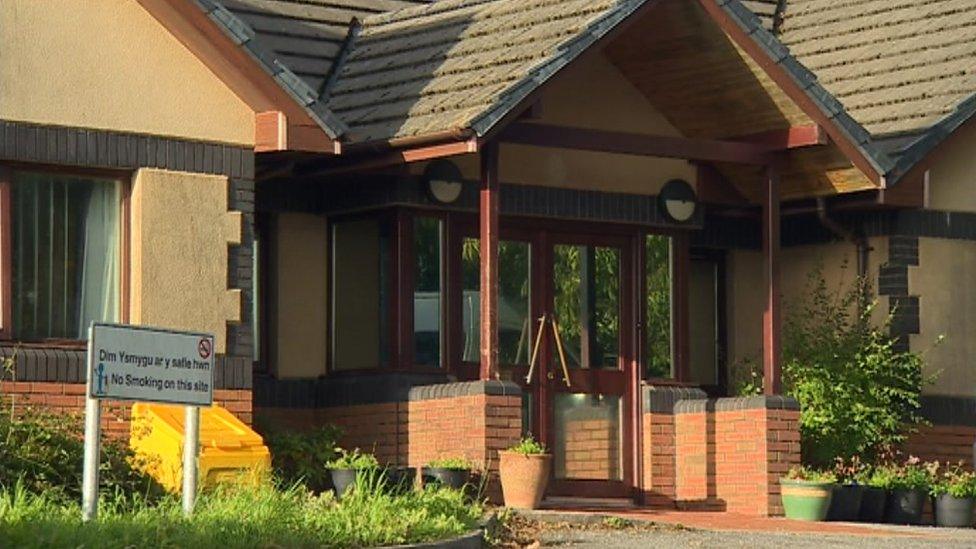
Bro Myrddin care home in Carmarthen.
Hywel Dda University Health Board has said that a new protocol will be issued to staff that will be further developed in consultation with Mr Hughes's family.
Dr Warren Lloyd, Associate Medical Director, said: "The Health Board continues to invest in improving awareness of the needs of patients with a learning disability."
- Published18 October 2018
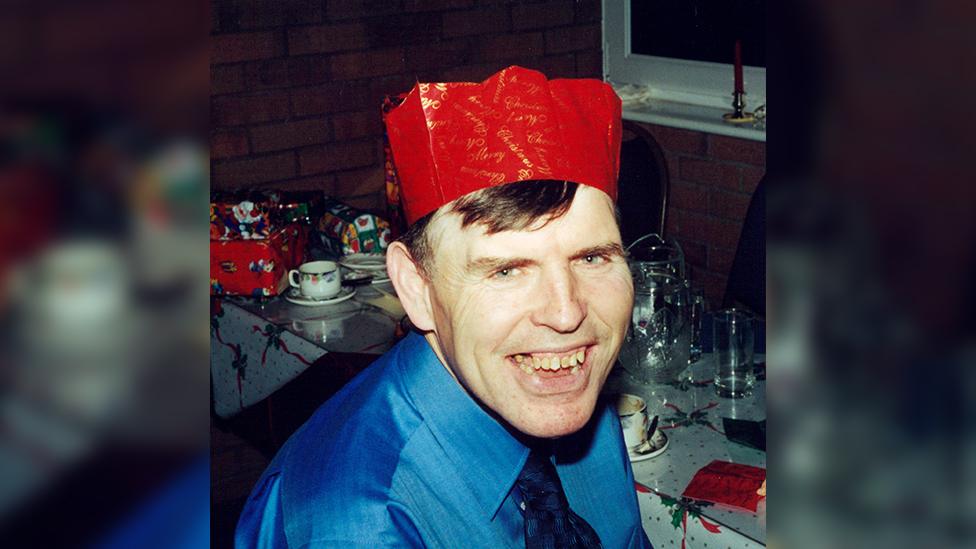
- Published17 October 2018
